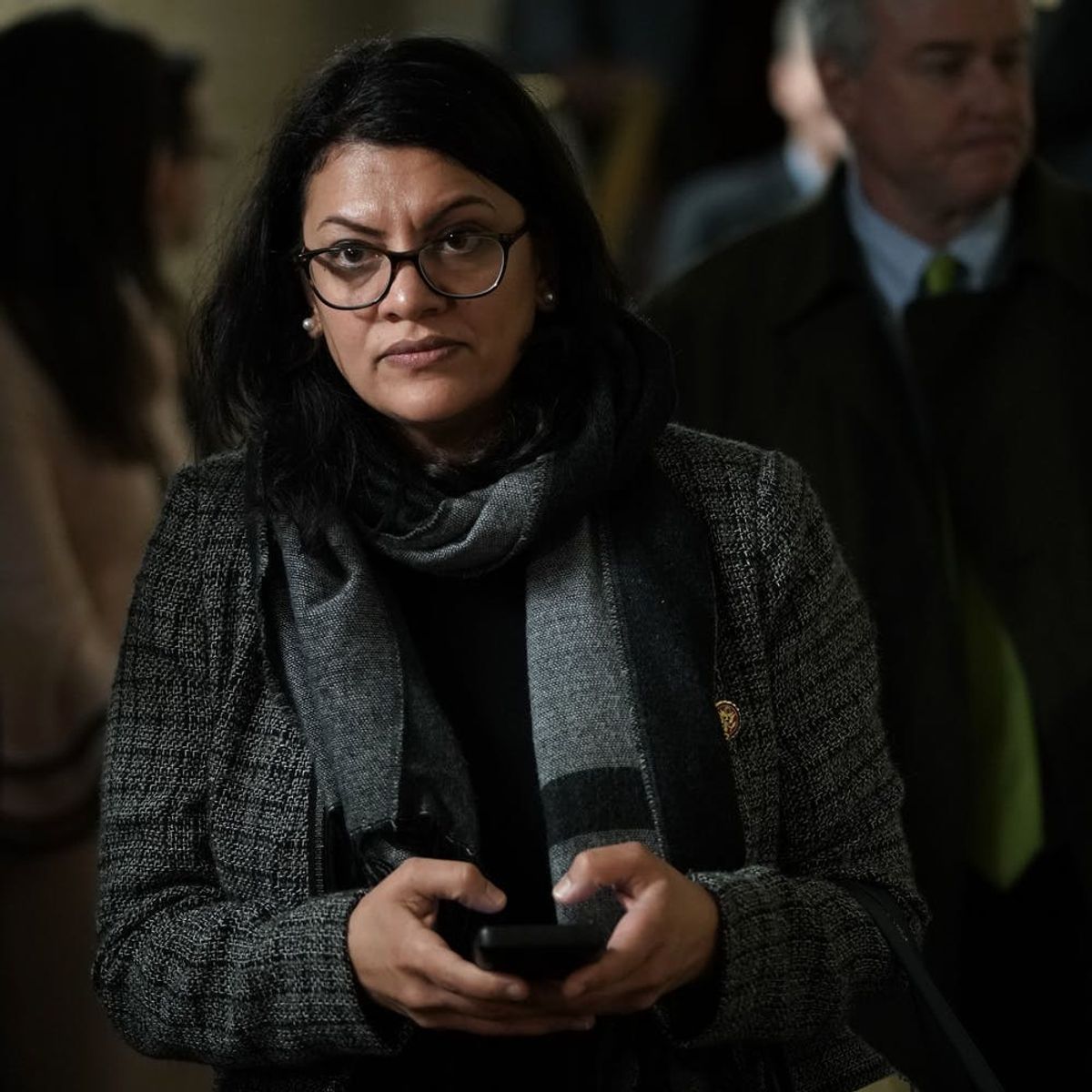Who’s allowed to be angry has always been political in nature.
Respectability Politics Underlie Reactions to Trump’s Lies and Tlaib’s Profanities

Amid an ongoing government shutdown caused by President Trump’s determination to build a costly, unnecessary, and racist wall along the US-Mexico border, Trump on Tuesday gave a speech ridden with lies linking a purported surge of southern border crossings with crime. The reality is that the rate of illegal border crossings has been trending downward for years, migrants at the border are often fleeing rather than perpetuating violence, border counties are actually highly safe, and most Americans oppose the construction of the wall.
Nonetheless, the speech was broadcast widely in mainstream media and — though the president’s statements have been broadly contested by news outlets — met with measured disapproval from Trump’s political opponents. While Democratic leaders acknowledged “misinformation” and “malice” in the president’s messaging after the address, they did so without naming the bigotry stoked by his untruths, nor the racist stereotypes that underlie his claims. And when Rep. Alexandria Ocasio-Cortez used the word “racist” to characterize the president on Sunday’s broadcast of 60 Minutes, correspondent Anderson Cooper appeared shocked. (“How can you say that?” he asked.)
This dangerous reality stands in sharp contrast with the response to another recent political incident.
Last week, video surfaced of Rep. Rashida Tlaib, the first Palestinian-American and one of the first two Muslim women to serve in Congress, promising to “impeach the motherf*cker” — referring, of course, to President Trump. Bipartisan, national outrage swiftly followed from pundits and political officials.

Whether it’s ever appropriate for elected officials to drop profanities is up for a separate debate. But many people have since pointed out that outcry from leaders and politicians who have supported a president known for uttering the statement “grab ‘em by the p*ssy” and referring to majority non-white nations as “sh*thole countries,” among plenty more profanities, rings almost laughably hollow.
“I thought it was highly disrespectful to the United States of America,” Trump would later say of Tlaib’s remark, driving home the different standards marginalized people must face to be accepted in a political landscape that continues to center the experience of white men.
Ultimately, respectability politics lie at the core of why President Trump can sweepingly dehumanize minority groups as criminals and rapists — and, for that matter, hold an entire nation hostage in the name of a racist, costly political agenda without consequence — while a woman of color can’t use an explicit word without breaking the internet.Who is allowed to be angry, to express disdain, and, certainly, to break with norms has always been deeply political in nature.
As a Muslim, Palestinian-American woman, Tlaib belongs to a community that has explicitly been targeted by the Trump administration. But pundits and politicoshave largely chosen to represent her anger as inappropriate, opting to scrutinize her word choice rather than the ways in which Trump and his administration might have led Tlaib to her bold position.
Respectability politics exist everywhere, informing media narratives and national perceptions of groups that vocally protest oppression. From the Black Lives Matter movement protesting horrific, racist police and institutional violence to the anti-fascist movement, better known as Antifa, to the pro-Palestine BDS movement, groups whose methods of protest stoke discomfort in powerful people who benefit from existing power structures are often broadly portrayed as radical and violent.
None of this is to say that protests led by these groups do not sometimes escalate into violence. Yet, it’s worth interrogating the widespread expectation of docility and good behavior from communities who are routinely, systemically subjected to state-led trauma and oppression. If people are genuinely concerned about violence, and not simply annoyed that minority groups have the audacity to demand better treatment, one would think they’d share in outrage at state-led violence and abuse.
Our collective obsession with the presentation and temperament of those who dissent or speak against abuses of power highlights the power dynamics that decide who gets to demand respect. They manifest in outcry at protesters that threatens to overshadow the oppression being protested. They manifest in widespread mockery of the excessive “political correctness” from transgender and non-binary people asking for their pronouns to be respected. And these power dynamics manifested in outrage at Rashida Tlaib’s use of a swear word to call out a presidency that has all but shattered any pretense of decorum.
(Photo by Alex Wong/Getty)

















